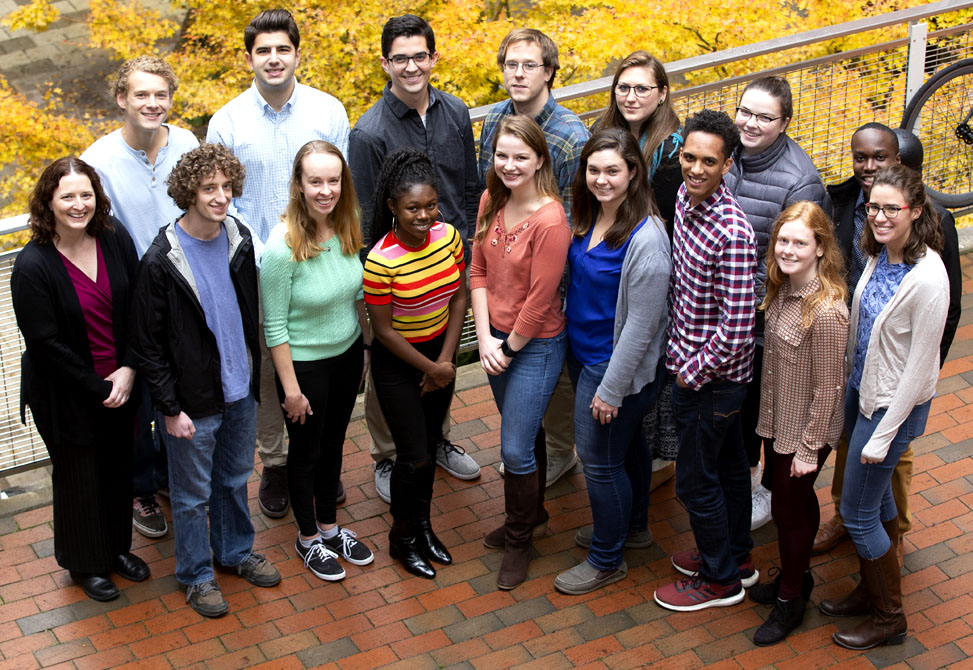Chemistry Graduate Programs
Overview
The Department of Chemistry offers graduate programs leading to the degrees of master of arts, master of science, non-thesis, and doctor of philosophy in the research areas of analytical, biological, inorganic, organic, physical, and polymer and materials chemistry. Reinforcing the broad nature of our graduate program, we have close interactions with various departments, including the Departments of Physics and Astronomy, Biochemistry and Biophysics, Environmental Science and Engineering, and the Biological and Biomedical Sciences Program.

Professor Leslie Hicks and her research group
Doctoral Program
The goals of the program are to provide students with a broad base in advanced topics in chemistry and substantial depth in one or more areas of expertise through an in-depth research experience. Students earning a Ph.D. in chemistry are intellectually functional as independent scientists and sufficiently technically skilled to perform advanced scientific research.
They are able to instruct others in their discipline. They have highly developed communications
skills to allow the efficient dissemination of scientific information in both a written and verbal
format.
Master’s Program
The master’s program in chemistry provides students with additional exposure to advanced topics in chemistry relative to an undergraduate degree. Significant, independent research experience is a substantial portion of the program so that the successful student can function as a research scientist in a corporate laboratory. Students earning a Master’s degree in chemistry are technically skilled to perform advanced scientific research in the laboratory. They also have strong oral and written communications skills.
Resources
The Chemistry Graduate Student Handbook has additional details and information on many aspects of the graduate student experience.

